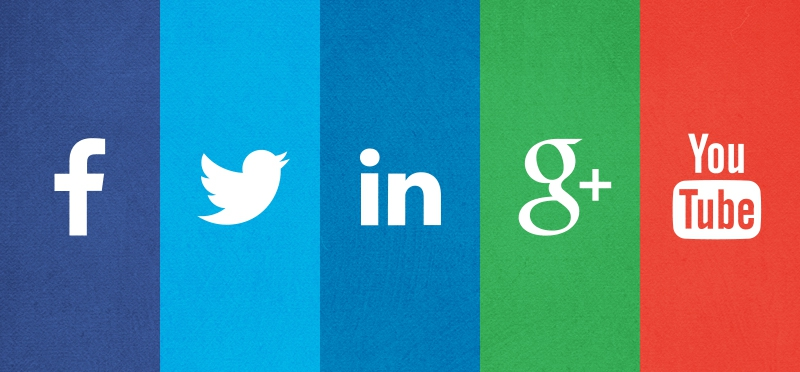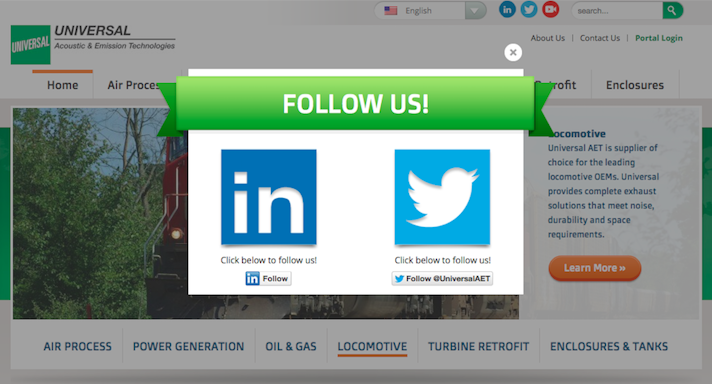Should Social Media Lead a Manufacturing Website?

I recently stumbled upon a list of Wisconsin Manufacturer of the Year award winners, and began perusing the websites of local nominees. Eventually, I landed on Universal Acoustic and Emission Technologies, a manufacturing powerhouse out of Stoughton, WI, and was greeted by this:

"Woah, Universal must really have its s*** together on social media," I thought, "especially if its marketing team is pushing Twitter and LinkedIn this hard." Bound by curiosity, I proceeded to check out both accounts. After scrolling through tweets and posts, one of my core beliefs was reaffirmed - social media should not be the primary call to action on a B2B manufacturing website.
Universal is the perfect example to explore my belief, because its social media marketing is so well done; content is published consistently, topics are directly related to its industry and posts engage people instead of talking at them. Yet, despite the great work of Universal's marketing team, social media still doesn't demand the most prominent placement on the website.
- A "follow" isn't the most valuable conversion: It's unlikely a first-time visitor to your website is going to engage with all your calls-to-action; is a "follow" really the action you want them to take? Conversions directly related to the sales-cycle (product videos, brochure requests, webinars) should take precedence over branding initiatives.
- There's no reason to "follow you" yet: The "follow" request is displayed before the visitor takes an action...how can your social media accounts provide value to someone if you don't know what they're interested in?
- Visitors are already at your news headquarters: Visitors are about to land on your homepage, it's safe to assume any important news/information will be available to them shortly.
Manufacturers aren't your quirky cousin Tim, Nike or the Green Bay Packers
Social media is a vital component of modern marketing, it's just less important for B2B Manufacturers because they are not lifestyle brands. Twitter, LinkedIn, etc. use algorithms on their news-feeds to prioritize what users see; delivering content that is more relevant to the individual rather than spewing a down-pour of information from all the accounts they follow. The change means the reach of organic, branded tweets and posts is likely to follow the cataclysmic decline seen with Facebook.
I have no doubt in my mind that Universal manufactures phenomenal products that save their customers time and money. I have no doubt that customers rave about Universal's products. I also have no doubt that many of Universal's clients are on social media. The problem is that the clients are talking about family, fishing, cooking, television and sports 99.5% of the time, so Universal's posts likely end up buried. Does social media have a shot at reaching customers? Sure, but chances are slim that a key account will be garnered from a hash-tagged tweet.
The proper place for social media
While social media conversions should not lead a site, the great content produced by companies like Universal does have a place and a purpose. Timeline and feeds are a great way to stay abreast of corporate news/events, so put "follow" buttons adjacent to articles and when sending out product updates. Social media also plays into organic search rankings, so if your content makes the rounds of industry influencers then your website is likely to get a boost.
The key to social is recognizing that, as a B2B manufacturer, people may love your products but they will rarely be defined by them (as they will by family, hobbies and sports teams). So keep social conversions in places where they're relevant, and tie "follow" requests to actions – like clicking on an article or video – rather than a broad splash.